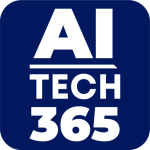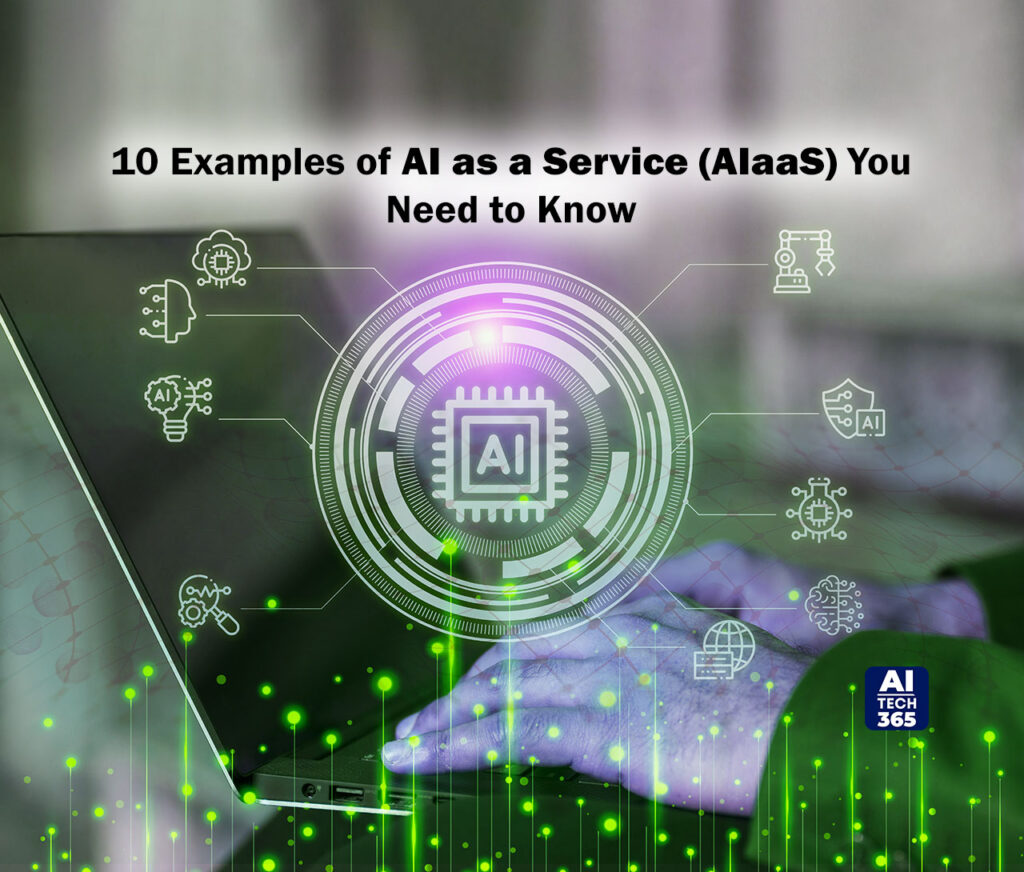In 1956, when John McCarthy coined the term “artificial intelligence,” aka AI, he barely knew how widespread and appreciated it would be. Fast forward to the 21st century, and AI software and tools are everywhere. (No, ChatGPT didn’t write this.)
Now, companies betting on artificial intelligence and using them for various business operations. Over 250 million companies use AI in some form. This has led to the introduction of a complete service called AI as a service. Simply put, it means that X company outsources AI capabilities to another company. It’s like renting a product rather than buying it.
Let’s see what exactly this means and the top 10 examples of AIaaS in this blog.
What is AI as a Service?
AI as a Service (AIaaS) is the process of outsourcing your AI capabilities to a third party. AI as a service allows individuals and businesses to use AI systems and applications without building their own expensive platforms.
ChatGPT is a great example of AI as a service. That’s because users get access to incredibly sophisticated natural language processing capabilities without having to build or manage the underlying generative AI technology.
10 Examples of AI as a Service for 2024
H2O Driverless AI
H2O Driverless AI is an AIaaS platform that leverages high-performance computation to sift through thousands of model variations and combinations. This helps it to discover the most optimal model given a specific dataset and use case.
This way, enterprises can harness the power of AI without the need for significant expertise or infrastructure to develop and deploy AI solutions efficiently.
Open AI
Coca-Cola’s vending machines are powered by AI analytics and, in combination with ChatGPT and Open AI, stand as one of the prime examples of AIaaS in action.
By using AI, Coca-Cola can analyze customer behavior and preferences, optimize stock control, and offer personalized recommendations all around.
This delivers enhanced customer experiences and enables enterprises to make data-driven decisions to optimize operations.
Recently, Coca-Cola has inked a five-year agreement for $1.1 billion to utilize Microsoft’s AI and cloud computing capabilities.
Also Read: Everything You Need to Know About Machine Learning Algorithms
Google Cloud’s BigQuery
Another example of AIaaS implementation is Procter & Gamble (P&G) using Google Cloud’s BigQuery.
P&G has built a data lake that offers a single view of consumers and creates omnichannel consumer journeys using the AI-powered data lake.
This solution provides P&G with valuable consumer insights leading to informed decisions and enhanced marketing performance.
Agent Assist Technology- Haptik
AI-powered agent assist technology is revolutionizing customer support functions.
AI algorithms automatically understand customer inquiries, crawl knowledge articles, and present relevant information to customer agents in real-time.
This leads to reduced research time, more accurate responses, and an enhanced customer support experience.
MonkeyLearn
MonkeyLearn is an AIaaS platform that provides out-of-the-box sentiment analysis features and AI chatbot solutions.
Businesses can now quickly analyze text data (i.e., customer feedback, and social media posts) to extract valuable insights on sentiment, opinion, and trending topics.
MonkeyLearn’s AI chatbots also deliver automated customer support solutions, so businesses can effectively and efficiently respond to a high volume of customer inquiries.
IBM Watson
LegalMation liberated lawyers from the mind-numbing task of drafting documents in the early phases of litigation by using the IBM application.
Watson helped the company achieve an astonishing reduction in writing time from 6–10 hours to under 2 minutes per document and forecasted an 80% savings in costs.
To achieve such an outcome, LegalMation assembled a team of subject-matter experts (SMEs).
They crafted a domain-specific model with a focus on terms and concepts with IBM Watson Knowledge Studio and IBM Watson Natural Language Understanding.
OpenNN
OpenNN is an open-source AI software that provides a free neural network library.
Researchers, data scientists, and developers can use advanced analytics across many industries, such as energy, health, and marketing.
With OpenNN, users can create and train sophisticated neural network models to support innovation and research in artificial intelligence.
Run:ai
Run:ai is an AIaaS platform that orchestrates machine learning infrastructure pipelines to enable data scientists to accelerate their productivity and model quality.
With run:ai, data scientists have a centralized overview of all resources, job schedules, and experiment tracking.
It orchestrates dynamic resource allocation that enables efficient execution of AI workloads while maximizing compute resource utilization.
DataRobot– AI for Automating Tasks
DataRobot delivers an AIaaS platform that automates the development, deployment, and optimization of artificial intelligence and machine learning at scale.
Automated machine learning is the core differentiator.
The company could hire a team of data scientists to build, test, and optimize dozens of models, but with DataRobot’s platform in place, the firm can automate this task.
Developers just need to upload historical loan information to the platform and then let DataRobot’s automated machine-learning engine train hundreds of models to find the one with the best prediction accuracy.
Sprinklr– AI in Customer Service
AIaaS is widely used in customer service to provide self-service functions, AI-powered chatbots for 24/7 customer support, and agent assist technology.
These AI-driven solutions enhance customer experiences by providing quick and accurate responses to inquiries, reducing wait times, and improving overall satisfaction.
Additionally, businesses can benefit from cost savings and improved operational efficiency by automating routine customer service tasks.
What’s Next for AI as a Service?
AI as a Service (AIaaS) is likely to be the most prevalent due to its scalability and affordability, as well as the value-added services on offer from providers. Vendors are focusing on ease of use and integration with current IT stacks to accelerate adoption.
Developments in AI algorithms will improve the functionality and ease of use of AIaaS, offering organizations the chance to exploit this technology without incurring massive investment in people and technology. AIaaS is likely to be the next frontier in artificial intelligence for business and will be useful in many industries and horizontal business functions.
AIaaS offers the potential for SMEs to exploit automation, as traditional solutions have high learning curves and are complex to implement. AIaaS is likely to remove these barriers.

